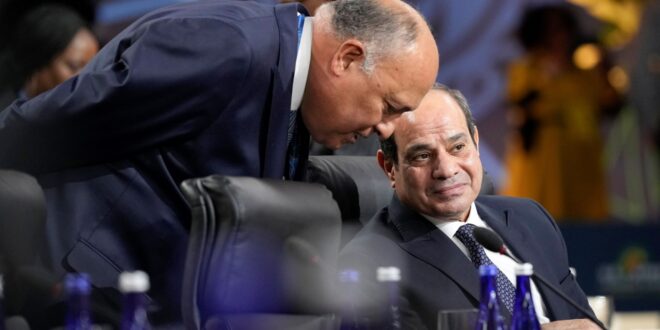Quiet mediation efforts between Egypt and Iran have been going on for months, seeking to end one of the Middle East’s longest-running but often-neglected feuds. In May, credible media reports indicated that Egyptian-Iranian talks had been taking place in Baghdad since March. Later that month, Oman’s Sultan Haitham bin Tariq visited both Cairo and Tehran in what was interpreted as an attempt to broker a reconciliation.
Several Iranian officials, including Supreme Leader Ali Khamenei and President Ebrahim Raisi, have publicly endorsed these efforts. And an Iranian member of parliament said he expected the talks to culminate in the restoration of formal ties and pave the way for a meeting between the two countries’ presidents. For their part, however, Egyptian officials have maintained a cautious stance on the issue, with Foreign Minister Sameh Shoukry saying that the status quo with Iran has not changed.
Relations between Egypt and Iran have been strained for more than four decades, though tensions have been punctuated by periods of calm. The strains can be attributed in part to the dramatic events of the late 1970s and early 1980s, when Egypt gave refuge to Iranian Shah Mohammad Reza Pahlavi after his ouster by the Islamic Revolution in 1979. The Shah lived in Cairo until his death in 1980, after which he was buried there. In a sign of protest, Iran’s new rulers cut ties with Egypt. Later, when an Islamist military officer assassinated then-Egyptian President Anwar al-Sadat in 1981, authorities in Tehran named a main thoroughfare in the city after him. The bitterness engendered on both sides went on to poison bilatera
 Eurasia Press & News
Eurasia Press & News




